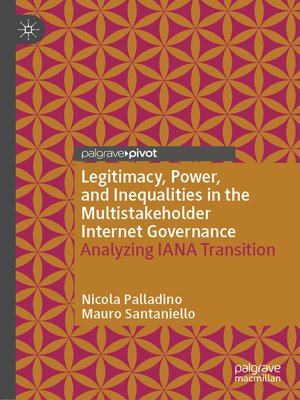Legitimacy, Power, and Inequalities in the Multistakeholder Internet Governance
ebook ∣ Analyzing IANA Transition · Information Technology and Global Governance
By Nicola Palladino

Sign up to save your library
With an OverDrive account, you can save your favorite libraries for at-a-glance information about availability. Find out more about OverDrive accounts.
Find this title in Libby, the library reading app by OverDrive.



Search for a digital library with this title
Title found at these libraries:
| Library Name | Distance |
|---|---|
| Loading... |
This book aims to develop a critical understanding of multistakeholder governance in Internet Governance through an in-depth analysis of the Internet Assigned Numbers Authority (IANA) transition, the process through which the U.S. Government transferred its traditional oversight role over the Domain Name System to the global Internet community. In the last few decades, multistakeholderism has become the dominant discourse in the Internet Governance field, mainly because of its promise to provide democratic legitimacy for transnational policymaking, although empirical research has highlighted disappointing performances of multistakeholder arrangements. This book contributes to the debate on multistakeholder governance by analyzing the IANA Transition process's normative legitimacy, broken down in the dimensions of input legitimacy (inclusiveness, balanced representation, and representativeness), throughput legitimacy (procedural and discursive quality), and output legitimacy (outcome and institutional effectiveness). Findings warn about the risk that multistakeholderism could result in a misleading rhetoric legitimizing existing power asymmetries.







